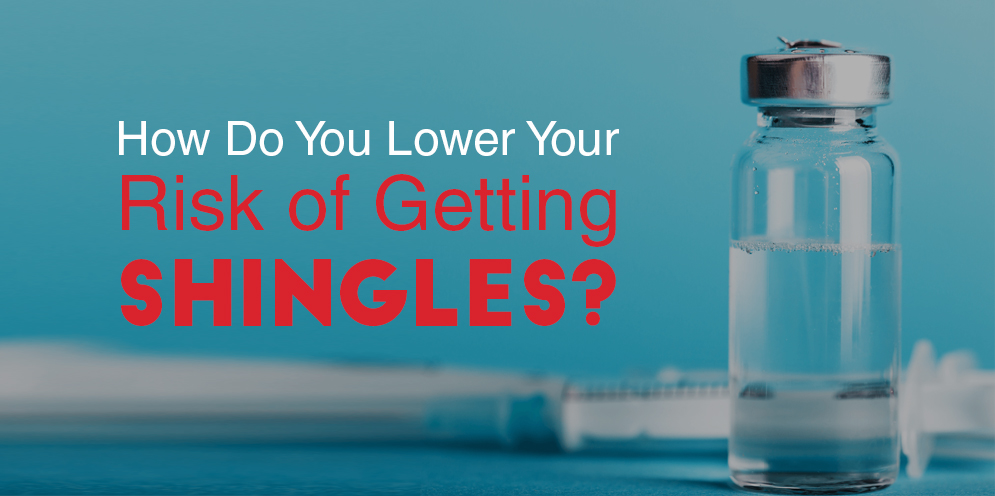
Herpes zoster or more commonly known as Shingles is a disease that is caused by the virus varicella-zoster. The virus stays in the body and becomes dormant in nerve cells, then reactivates later in life. Shingles is a very painful disease (it affects nerves in the skin) that lasts between two to six weeks. It is characterized by having painful, blistering skin rash.
In this article, you will find some valuable information that will enlighten you about shingles and most importantly help you find out if you’re at risk of acquiring the disease.
What are the Risk Factors of Shingles?
One in five adults get sick from shingles. Also, women are more prone to having shingles than men, with no clear reason behind this statistic yet. Reports revealed that 5% of shingles cases involve children. This proves that however rare the disease is, children can also acquire shingles and the ones who have the highest risk are those with immune deficiencies. While most adults are at risk of having shingles, it only occurs for only 10%-20% of the adult population. This means that certain contributing factors have to exist to increase one’s risk of having shingles.
Here are the factors that might contribute to a person having shingles:
Chickenpox
Those who have had chickenpox have a large chance of having shingles later as adults. This is especially true for children who have had chickenpox before they were one to two years old as they can get shingles even before adulthood.
A pregnant woman who got sick with chickenpox increases the likelihood of her baby getting sick with shingles during the first or second year of his or her life.
Old Age
People 50 years old and above are at risk of getting shingles. People who reach 80 years old have a 50% chance of getting the disease. Aging naturally weakens the body therefore triggering the virus to become active again.
Weakened Immune System
Aside from aging, certain diseases and procedures such as organ transplant, radiation, radiotherapy and chemotherapy can weaken one’s immune system. Diseases such as cancer, HIV/AIDS, diabetes and autoimmune diseases such as lupus increase one’s risk of having shingles.
Immunosuppressive Drugs
Additionally, there are medicines that weaken the immune system such as steroids and those that are taken after undergoing organ transplant. Here are a few of the medicines which suppress the immune system:
- Azathioprine (Imuran)
- Chlorambucil (Leukeran)
- Cyclophosphamide (Cytoxan)
- Cyclosporine (Sandimmune, Neoral)
- Cladribine (Leustatin)
- Infliximab (Remicade)
- Adalimumab (Humira)
Stress
Although stress alone does not cause shingles, most people who became sick with it have recently had a stressful event in their life.

How Do You Lower Your Risk of Getting Shingles?
- You can reduce your risk of getting shingles by getting the shingles vaccine. This will also lower the risk of postherpetic neuralgia (PHN). PHN is the most feared but common complication of shingles which causes persistent pain. The pain has been reported to last for months, sometimes even years after having shingles.
- As routine vaccinations against chickenpox were only made available in the recent years, there are people who already had chickenpox when they were younger which makes them at higher risk of acquiring shingles. Chickenpox vaccination is a preventive measure against shingles. This means that once you get the vaccine, your risk of getting the disease is also reduced.
- The virus causing shingles also known as varicella zoster, attacks a body with weakened immune system. To lower your risk of getting shingles, you have to strengthen your immunity to make your body more resistant to viruses. There are also studies that noted how the body’s immunity against shingles is enhanced among individuals who have already acquired chickenpox twice.
- Natural treatments are also available to combat shingles. Vitamins, herbs, and various remedies can be used to fight the disease. Foods rich in vitamin-B and C will boost the body’s immunity and strengthen the nervous system that is under attack. There is also a recommended intake of vitamins to promote faster recovery and to flush out the virus. In addition to these, there are foods that one needs to avoid in order to heal faster from shingles such as carbonated drinks, caffeine and fried food.
Now that various treatments are available, there are more opportunities to learn more about this disease and choose which treatment is best for you.
Did you love what you read? Do you have more information on shingles? Share them and leave a comment.

